SDG17
NCKU's International Collaboration Expands and Joins Forces with Japan's ATR to Cultivate Taiwan-Japan Startups
Written & Image Credit to NCKU Innovation Headquarters.
National Cheng Kung University (NCKU) continues to secure remarkable international connections, marking another milestone in cross-border collaboration. On December 11th, the NCKU Innovation Headquarters signed a Memorandum of Understanding (MOU) with Japan's Advanced Telecommunications Research Institute International (ATR), officially making ATR an international member of the NCKU Innovation Headquarters. Concurrently, ATR collaborated with the Japan External Trade Organization (JETRO) to select three promising startups from the Kansai region to undergo overseas training in Taiwan. NCKU will be providing comprehensive guidances to these startups, as well as organizing visits to the Southern Taiwan Science Park (STSP) and the TTA South etc., to proactively establish connections within the Taiwanese companies, accelerators, and startup teams.
The signing ceremony, witnessed by NCKU Executive Vice President Woei-Jer Chuang, was jointly completed by Director General Liang-Ming Whang of the NCKU Innovation Headquarters and ATR's Executive Vice President Hiroyuki Suzuki. Executive Vice President Chuang noted that in the early days, students from Taiwan's four major universities, excluding NCKU, often pursued further studies abroad and settled there afterward. In contrast, NCKU graduates predominantly remain in Taiwan, contributing to their respective industrial advancements. Statistics show that nearly 80% of the CEOs or founders of the top 100 companies in Taiwan are NCKU graduates, indicating strong ties with local Taiwanese companies. Therefore, Executive Vice President Chuang hoped that 「the collaboration between Taiwan and Japan will assist startups from both sides in establishing connections with enterprises in Taiwan and Japan.」 After all, speed is of the essence for start-ups, and only by accelerating the pace of innovation will they be able to establish a firm footing in the ever-evolving world.
Executive Vice President Hiroyuki Suzuki of ATR mentioned that ATR initiated a global startup collaboration program four years ago, establishing a network with over a thousand institutions worldwide, including the UK, Israel, Taiwan, Canada, Spain, India, and recently, Egypt and Lithuania within the last three months. He expressed delight in welcoming NCKU as a partner, highlighting ATR's KGAP+ (Keihanna Global Acceleration Program Plus) as an accelerator that matches startups with Japanese companies. However, of the 140 startup teams trained in the past nine batches, only two were from Taiwan. Dr. Suzuki eagerly anticipates bringing more Taiwanese teams into the KGAP+ program.
The ATR delegation will participate in a week-long training program in Taiwan. NCKU's Innovation Headquarters will provide one-on-one mentoring, networking, workshops, and operational management courses to assist the teams in commercializing their technologies. Additionally, the program includes visits to the Southern Taiwan Science Park Bureau (STSP), various enterprises stationed in the STSP, as well as linking up both NCKU and TTA South's startup teams together to facilitate the exchange of new startup talents on both sides. It is anticipated that NCKU will dispatch startup teams to Japan for reciprocal visits next year, aiding NCKU's startups in exploring the East Asian and global markets.
Established in 1989, ATR is located in Seika-cho, Kyoto Prefecture, Japan, and is the core research institution in the “Keihanna Science City” in Kansai, Japan. They have nearly 260 employees, of which nearly 70% are researchers. As the host of the Keihanna Global Acceleration Program Plus (KGAP+), ATR also acts as an innovation center and is committed to building an innovation platform linking global networks to support a wide range of activities such as interdisciplinary research and development, as well as commercialization support among companies, enterprises, residents, research institutions, universities, and governments. This forms a virtuous cycle to promote the development of innovative ecosystems.
As of now, KGAP+ has successfully completed training for nine batches of startup teams since its launch in 2019. In the latest collaboration, with support from JETRO, ATR initiated the "KGAP+ x JETRO Taiwan Special Program." Three promising startup teams were selected from the KGAP+ startup ecosystem to undergo overseas training in Taiwan, targeting the startup field in NCKU. National Cheng Kung University (NCKU) serves as the practical training ground for these startups, facilitating connections with global enterprises, academic institutions, and other partners.
Neiglobe Networks, Project K, and Osaka Heat Cool, the three startups brought to Taiwan by ATR, focus on networks and smart devices. In order to bridge the gap in the supply of ICT needs in disaster-stricken areas, Neiglobe Networks developed LACS (Locally Accessible Control System), a portable disaster emergency communication system in disaster zones. It creates a temporary internet-like environment that allows local residents to communicate using smartphones and other devices. The system has basic ICT functions, including broadcast communications, bulletin boards, messaging functions, and registration functions, and is designed to quickly establish a local network environment for use by disaster response officials and the local community in such situations. Its intended uses cover on-site communications during disasters, provide temporary communications tools in shelters, and serve as a local communication tool for events and training under normal circumstances.
A startup team derived from ATR's research outcomes, Project K is dedicated to developing stable communication technology. It aims to provide powerful, economically efficient, easy-to-set-up, and license-free wireless network communication devices designed for work environments with numerous obstacles, such as forestry. The system ensures stable, low-latency communication in adverse conditions, including offering high-quality video for remote control of on-site machinery. Dr. Kondo Yoshihisa, representing Project K, serves as the head of the ATR laboratory. In order to apply their research and development outcomes to society, he participated in the KGAP+ program's summer training in 2023. Project K is the first startup team based on ATR's research and development achievements to join the KGAP+ program.
Osaka Heat Cool, a startup derived from Osaka University, has developed an anti-itch device called "ThermoScratch", with the mission of "decoding the five senses through temperature." Itchiness arises from various factors such as insect bites, allergies, atopic dermatitis, and internal medical conditions etc. ThermoScratch utilizes semiconductor components with Peltier elements to provide "hot" and "cold" sensations when applied to the skin. By simultaneously applying these two sensations, it creates a mild pain illusion through temperature sensitivity, effectively alleviating itching without damaging the skin. It is particularly suitable for children who cannot tolerate itching.
The collaboration between NCKU and ATR aims to jointly support the growth of startup teams from Taiwan and Japan. By leveraging the abundant resources from industry, government, and academia of both sides, the collaboration will provide guidance to startup teams through various stages, including conceptual ideation and validation, prototype development, and the creation of Minimum Viable Products (MVPs). Additionally, both parties will collaborate to accelerate the development of startups that have entered the commercialization stage. This involves linking and sharing diverse resources from both sides, including multinational industrial markets, to guide and expedite Taiwanese and Japanese startups in entering each other's markets. The collective effort aims to foster new startup enterprises with international perspectives and rapid scalability.
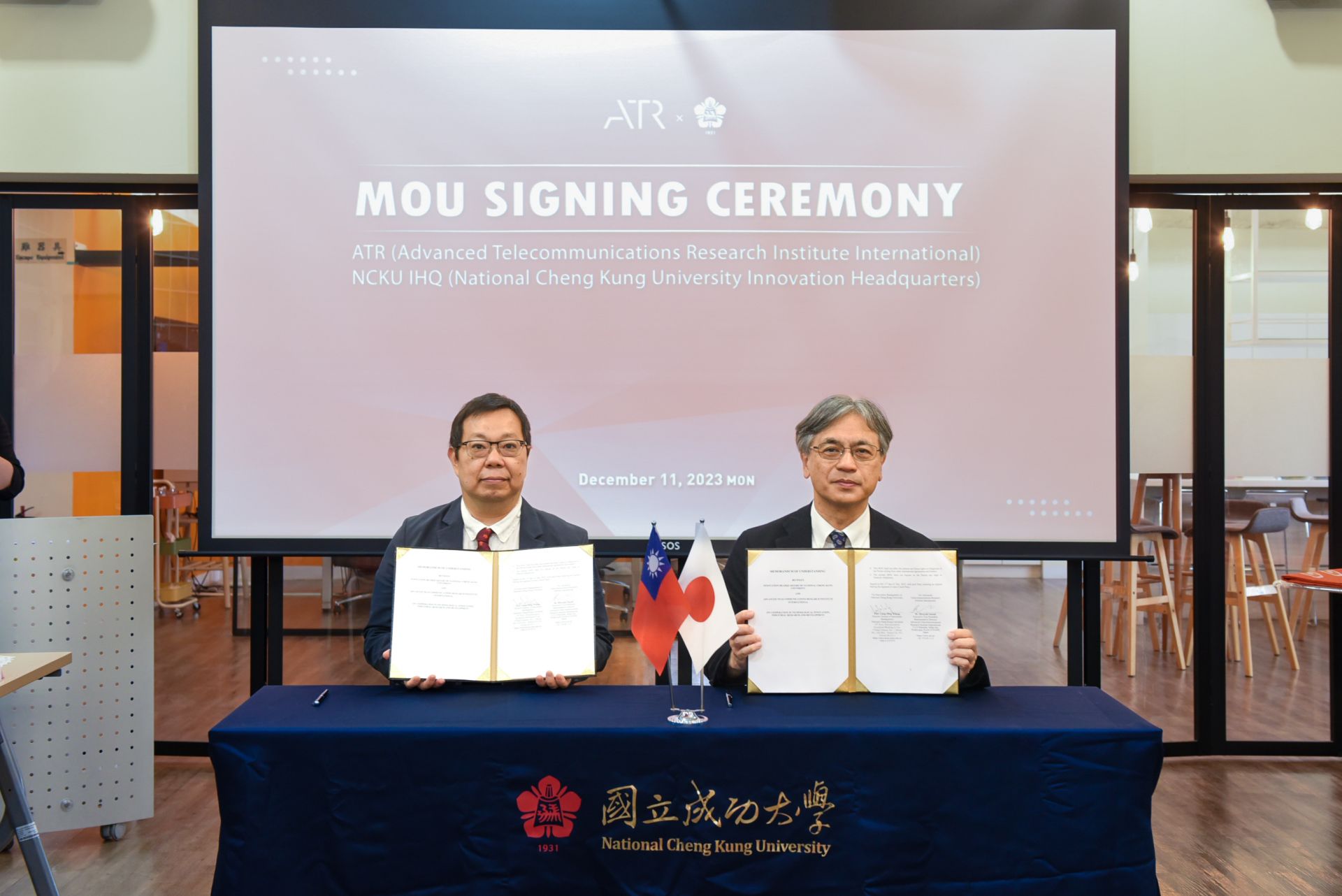
(Left) Director General Liang-Ming Whang of the NCKU Innovation Headquarters and ATR's Executive Vice President Hiroyuki Suzuki.
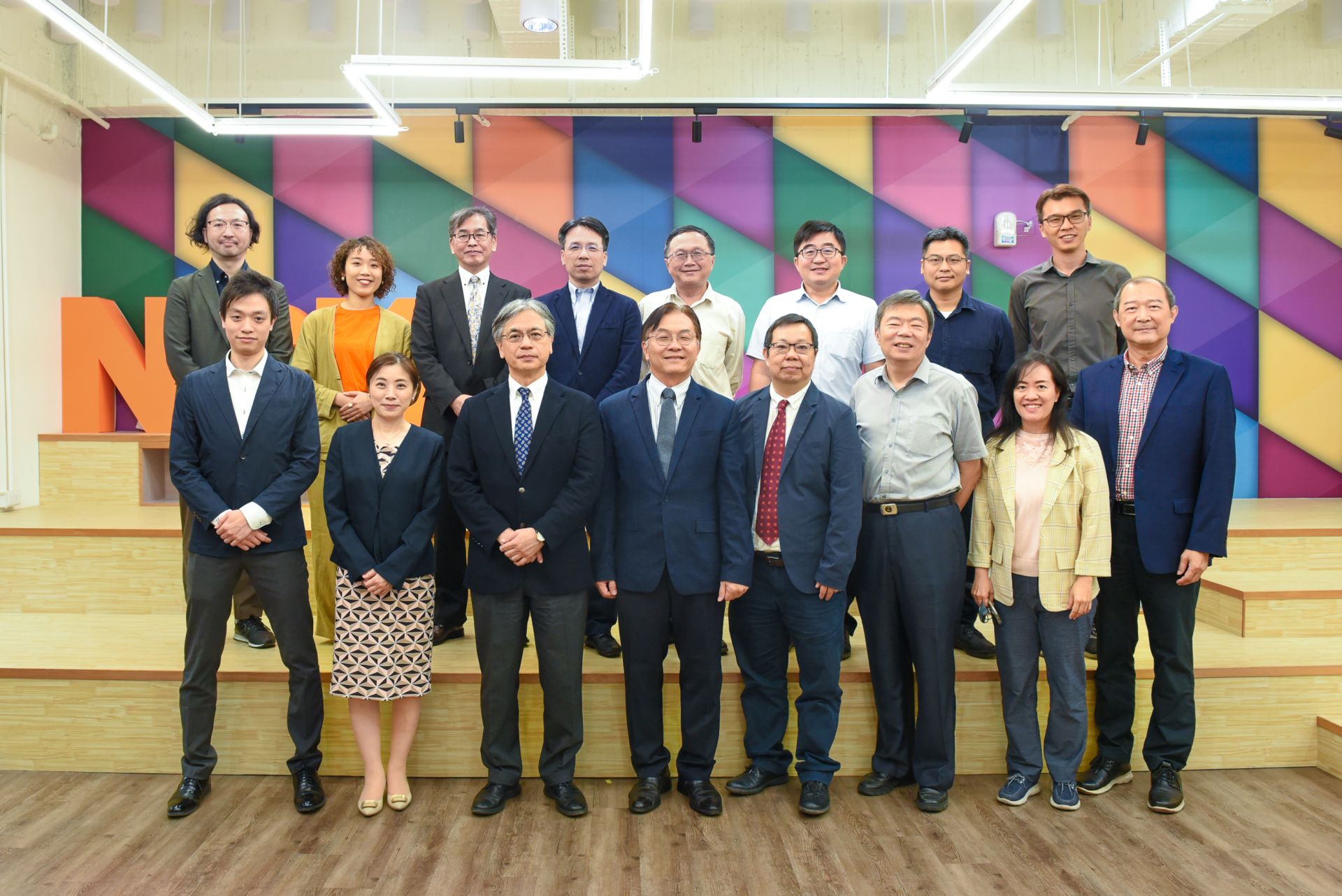
The ATR delegation visited NCKU on December 11th.
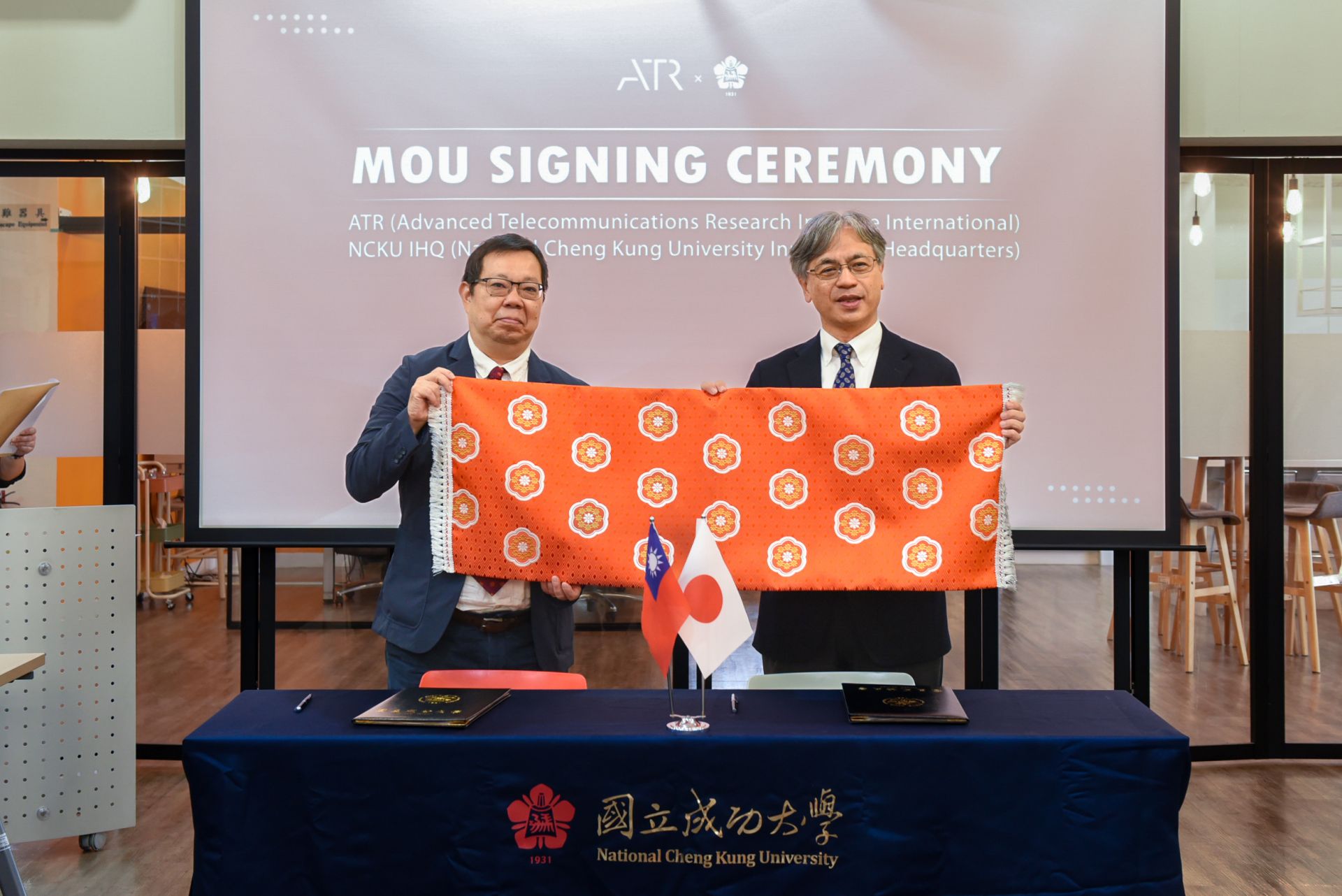
ATR handed a Japanese textile centerpiece on the table as a memorabilia to NCKU IHQ. The textile is made of recycled PET bottles.
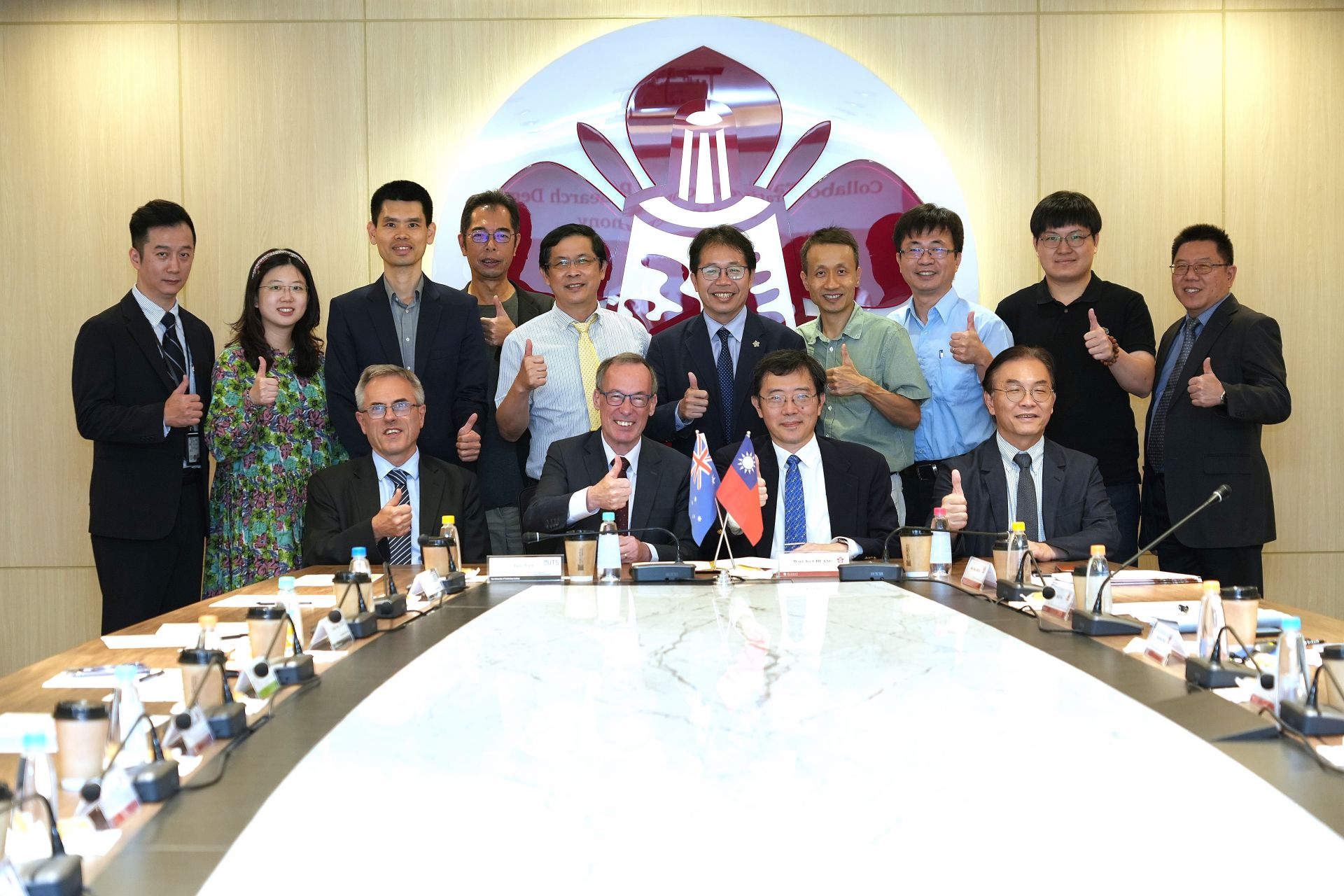
SDG17University of Technology Sydney Signs Dual PhD Agreement with NCKU College of Electrical Engineering and Computer Science
View more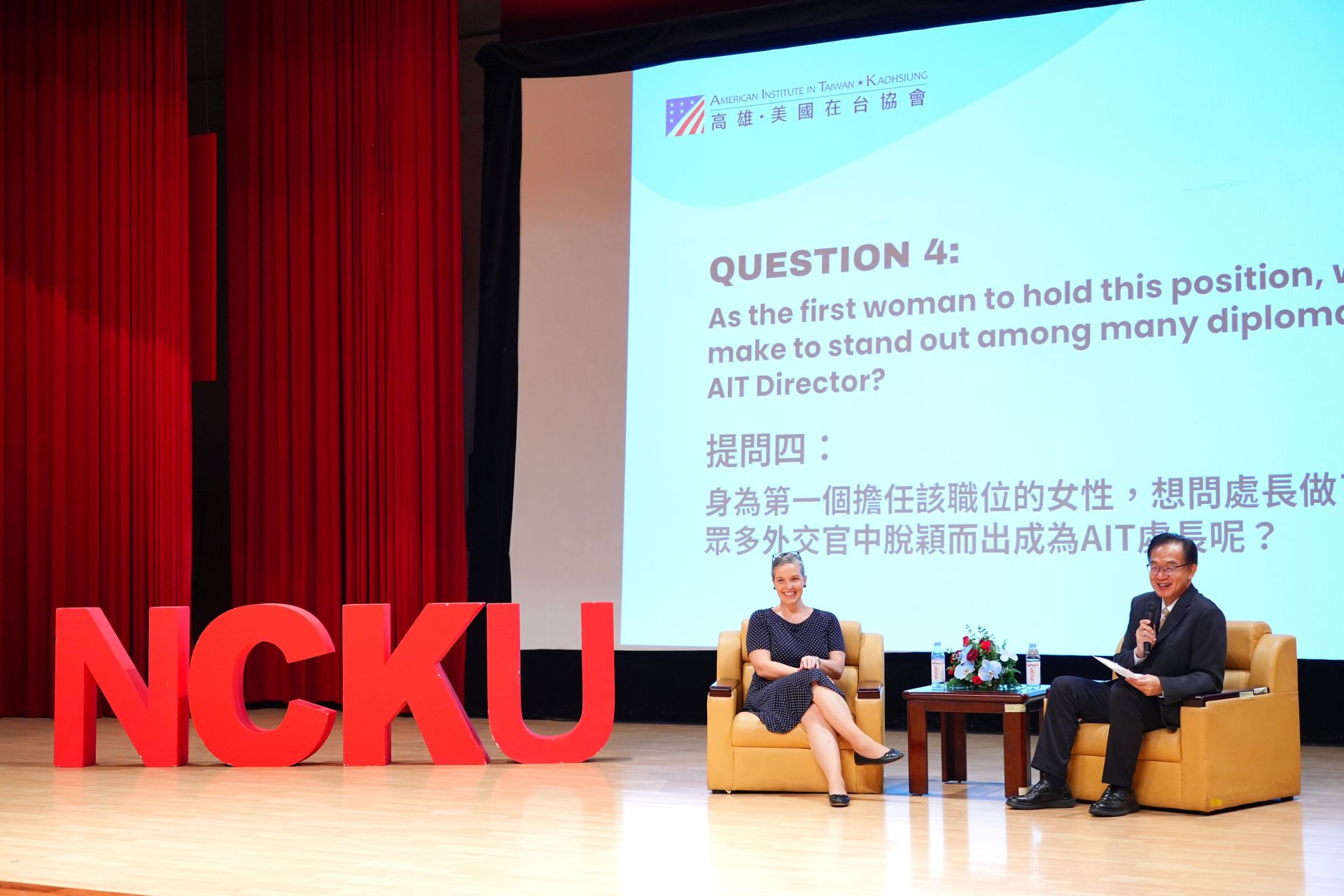
SDG17AIT Director Sandra Oudkirk Delivers Farewell Speech at NCKU: Reflecting on and Looking Ahead After Her Three-Year Tenure.
View more



















